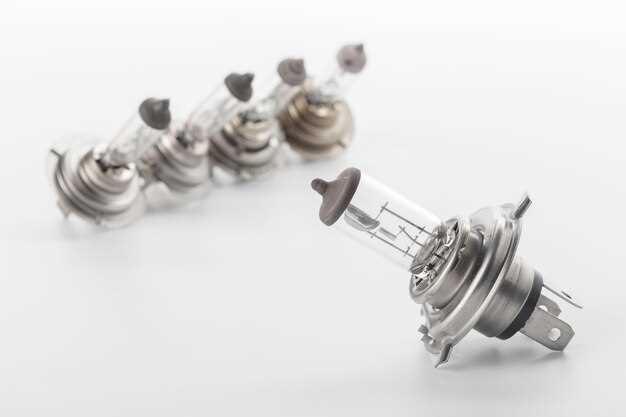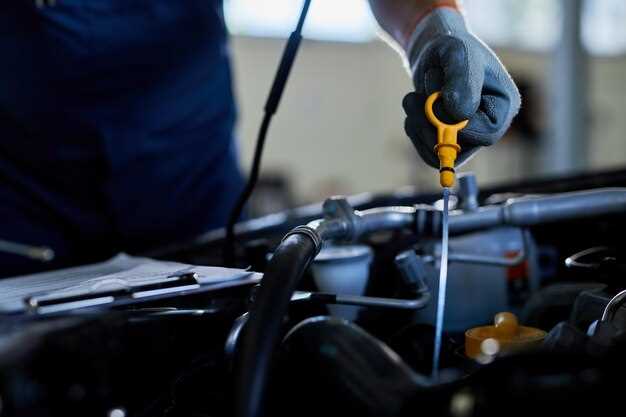
When it comes to optimizing engine performance, one of the most crucial components that often gets overlooked is the fuel injector. While standard fuel injectors can efficiently deliver fuel to the engine under normal operating conditions, high-flow fuel injectors have gained popularity among automotive enthusiasts and professionals alike. These injectors are designed to provide a greater volume of fuel, which can be essential for modified engines or vehicles that demand more power.
The decision to upgrade to high-flow fuel injectors involves careful consideration of several factors. Increased fuel delivery can enhance horsepower and torque, but it also requires a compatible fuel management system, as well as tuning adjustments to ensure the engine runs smoothly and efficiently. Ignoring these aspects can lead to performance issues or even engine damage.
In this article, we will delve into the primary benefits of high-flow fuel injectors, their potential drawbacks, and whether they might be the right fit for your vehicle. Understanding your car’s specific needs and performance goals is essential to make an informed decision, and we aim to provide you with the insights necessary to determine if high-flow injectors are the optimal choice for your engine tuning aspirations.
Understanding the Benefits of High-Flow Fuel Injectors

High-flow fuel injectors are essential components for high-performance engines, offering a range of benefits for those seeking efficiency and power. One of the primary advantages is the increased fuel delivery capacity. These injectors can deliver a greater volume of fuel compared to standard injectors, which is crucial for engines that require more fuel to support higher horsepower and torque levels.
Another significant benefit is improved throttle response. High-flow injectors can provide a more immediate fuel supply, allowing the engine to react quickly to accelerator input. This responsiveness can enhance overall driving dynamics, making for a more enjoyable driving experience, especially in performance applications.
Moreover, upgrading to high-flow fuel injectors can lead to better fuel atomization. This results in a finer mist of fuel being distributed in the combustion chamber, thereby promoting more efficient combustion. Improved combustion efficiency can lead to increased power output and reduced emissions, making high-flow injectors an effective modification for both performance and environmental considerations.
Additionally, high-flow injectors enable better tuning capabilities. When paired with a performance engine management system, they allow for precise adjustments to the air-fuel mixture, optimizing performance and efficiency under various operating conditions. This adaptability is especially beneficial for enthusiasts who frequently modify their setups for different driving scenarios.
Lastly, installing high-flow injectors can be a proactive measure for those planning future engine upgrades. As modifications such as turbocharging or supercharging increase performance demands, having high-flow injectors in place can alleviate potential fuel delivery issues, ensuring the engine runs smoothly and efficiently.
Identifying Compatibility with Your Engine Setup
When considering high-flow fuel injectors, the first step is to ensure they are compatible with your engine setup. Compatibility involves multiple factors, including fuel system design, engine configuration, and tuning capabilities.
Start by assessing your engine’s current fuel delivery system. High-flow injectors typically require a higher fuel pressure and volume to operate efficiently. Check your fuel pump’s specifications to ensure it can provide enough fuel to support the increased flow rates of the new injectors. Additionally, verify that your fuel lines can handle the increased fuel delivery and pressure.
Next, consider your engine’s configuration. High-flow injectors are generally more beneficial for performance-oriented setups, such as turbocharged or supercharged engines that require greater fuel efficiency under load. If your engine is naturally aspirated, high-flow injectors may not provide significant advantages and could lead to an overly rich fuel mixture, negatively impacting performance and fuel economy.
Tuning is another critical aspect of compatibility. Installing high-flow injectors without proper tuning can result in poor engine performance and may even cause damage. A custom tune is essential to recalibrate the air-fuel ratio and optimize engine management parameters. This ensures that your engine runs efficiently and takes full advantage of the increased fuel delivery.
Furthermore, ensure that your engine control unit (ECU) can support the new injector specifications. Some ECUs may require upgrades or additional modules to accommodate high-flow injectors effectively. Make sure to research or consult with professionals who have experience with your specific engine model and high-flow injectors.
Lastly, consider the injector type and compatibility with your engine’s fuel type. Some high-flow injectors are designed for specific fuels, such as gasoline, ethanol, or methanol. Ensure that the injectors you choose are suitable for your fuel type to avoid performance issues.
In summary, identifying compatibility with high-flow fuel injectors involves evaluating your fuel system, engine configuration, tuning requirements, ECU capabilities, and fuel type. Taking these factors into account will help determine whether high-flow injectors are the right choice for your engine setup.
Assessing Performance Needs and Fuel Management Systems

When considering high-flow fuel injectors, it is essential to assess your specific performance needs. High-flow injectors are designed to deliver a greater volume of fuel, which is crucial for high-performance engines that require increased fuel flow to achieve optimal power and efficiency. Understanding the demands of your engine setup and the intended use of your vehicle–be it racing, street performance, or heavy towing–is fundamental in determining if these injectors are suitable for your application.
First, evaluate the engine’s power goals. Consult with a tuner or performance specialist to determine the horsepower and torque levels you aim to achieve. High-flow injectors become increasingly beneficial when your engine’s power output surpasses the capabilities of stock injectors. Ensure that the chosen injectors can accommodate the target air-fuel ratio (AFR) necessary for optimal combustion and performance.
Next, consider the existing fuel management system in your vehicle. High-flow injectors require precise tuning and control to function efficiently. Ensure that your engine management system (EMS) can handle the increased fuel delivery. Many modern vehicles utilize advanced ECU programming that supports various fuel injector sizes, but older systems may need upgrades. Upgrading to a programmable ECU or using a fuel management system specifically designed for performance applications may be necessary to optimize injector performance.
Additionally, assess supporting modifications that may be required alongside high-flow injectors. This includes upgrading the fuel pump to maintain adequate fuel pressure and prevent potential lean conditions. Furthermore, ensure that your fuel lines and filters are rated for higher flow rates and able to deliver the necessary volume of fuel consistently.
Finally, if you decide to opt for high-flow fuel injectors, detailed tuning is critical. Working with a professional tuner can help refine the fuel map to ensure optimal performance while avoiding issues such as flooding or incomplete combustion. Proper assessment of performance needs and a comprehensive understanding of your fuel management system will enhance the benefits derived from high-flow fuel injectors, ensuring your engine performs at its best.
